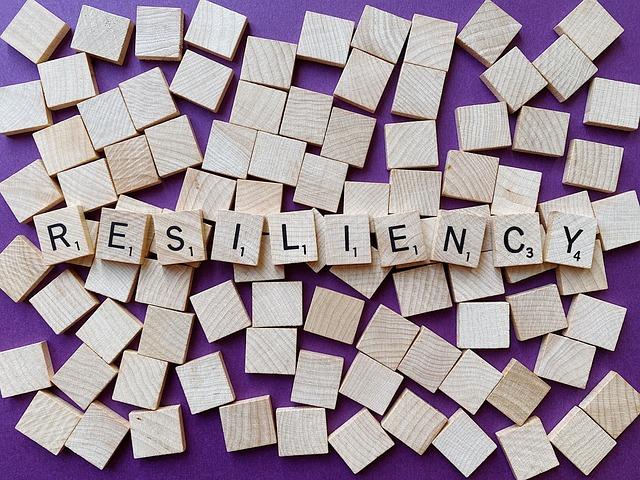In today’s rapidly evolving world, children are continually faced with an array of challenges that can shape their development and future success. From academic pressures to social dynamics and technological advancements, the ability to navigate these hurdles with confidence is crucial. Teaching your child to overcome challenges is not merely about providing solutions; it’s about equipping them with the skills and mindset necessary to tackle obstacles independently. This article delves into the strategies and principles that can empower parents to foster resilience and self-assurance in their children. By understanding the psychological and emotional underpinnings of confidence, parents can create a supportive environment that encourages growth and adaptability. Through an analytical lens, we will explore the essential components of building confidence, offering practical insights and evidence-based approaches to help your child transform challenges into opportunities for personal development.
Understanding the Roots of Resilience in Childhood
In the journey of nurturing a child’s ability to face life’s hurdles, it’s essential to delve into the fundamental elements that foster resilience. Research suggests that resilience is not a trait that children either have or do not have. Instead, it involves behaviors, thoughts, and actions that can be learned and developed in any child. At the core of this development is a supportive environment where children feel safe and valued. A child’s capacity for resilience is often strengthened by their relationships with caring and supportive adults. Parents and guardians can play a pivotal role by modeling resilient behavior and encouraging children to view challenges as opportunities for growth rather than insurmountable obstacles.
- Encourage Problem-Solving: Allow your child to come up with solutions to challenges, providing guidance when necessary but not solving the problem for them.
- Promote Positive Thinking: Teach your child to reframe negative thoughts and focus on positive outcomes, fostering a mindset that views challenges as temporary and manageable.
- Build Emotional Awareness: Help your child understand and articulate their emotions, which can lead to more effective emotional regulation and resilience.
- Foster Independence: Gradually increase your child’s responsibilities, which builds confidence and a sense of competence in handling life’s difficulties.
By embedding these practices into daily interactions, parents can cultivate a robust foundation for resilience, equipping children with the confidence to navigate life’s inevitable challenges.

Cultivating a Growth Mindset for Lifelong Confidence
Embracing a growth mindset can empower children to tackle obstacles with resilience and assurance. At its core, a growth mindset is the belief that abilities and intelligence can be developed through dedication and hard work. This perspective fosters a love for learning and resilience essential for significant accomplishments. Here are some strategies to nurture this mindset in your child:
- Encourage Curiosity: Foster an environment where asking questions is welcomed and celebrated. This not only builds knowledge but also instills the confidence to explore the unknown.
- Emphasize Effort Over Results: Celebrate the process and the effort your child puts into their tasks, rather than just the final outcome. This reinforces the value of perseverance.
- Model a Growth Mindset: Children often emulate the attitudes and behaviors of adults. Share your own challenges and how you overcame them, highlighting the learning journey.
- Provide Constructive Feedback: Offer specific, actionable feedback that focuses on strategies and processes rather than personal attributes.
By integrating these practices into daily interactions, you equip your child with the tools to approach challenges with confidence and adaptability, laying the foundation for lifelong success.

Practical Strategies for Building Problem-Solving Skills
Empowering your child to tackle obstacles requires a thoughtful approach that integrates daily activities with structured learning. Encourage curiosity by asking open-ended questions and exploring various solutions together. This not only enhances their analytical skills but also builds confidence in their ability to approach problems from different angles. Integrating games that focus on logic and strategy can be a fun way to develop these skills. Consider introducing puzzles, chess, or coding games that challenge their critical thinking and require them to devise plans and adapt to new situations.
Fostering an environment that celebrates mistakes as learning opportunities is crucial. Promote resilience by guiding your child to reflect on what went wrong and how they might approach the problem differently next time. This process helps them understand that setbacks are part of the learning journey. Encourage them to set small, achievable goals and celebrate these milestones to build momentum and confidence. By maintaining a supportive and patient demeanor, you create a safe space for them to experiment, fail, and ultimately succeed.
Encouraging Independence While Providing Support
Fostering a sense of autonomy in children while ensuring they feel supported is a delicate balance, yet it’s pivotal for their growth. As parents, it’s essential to provide opportunities for children to make decisions, allowing them to experience the natural consequences of their choices. This not only builds confidence but also teaches responsibility. Encourage them to tackle tasks on their own, offering guidance rather than solutions. Here are some strategies:
- Create a Safe Environment: Allow them to explore their surroundings safely, encouraging curiosity and problem-solving.
- Set Achievable Goals: Break down tasks into manageable steps, enabling them to experience success and learn from setbacks.
- Be a Supportive Coach: Offer feedback that is constructive and focused on effort, rather than simply outcomes.
Remember, the aim is to nurture a mindset that values perseverance and resilience. By providing a supportive backdrop, children are more likely to venture beyond their comfort zones, embracing challenges with self-assurance. This approach not only prepares them for future obstacles but also instills a lifelong love of learning and growth.



